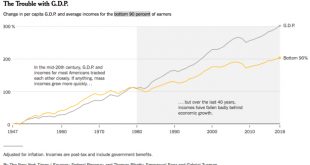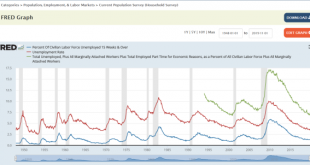from C. P. Chandrasekhar and Jayati Ghosh Anyone who has been following the upsurge of protests across the country in the wake of the CAA-NRC moves of the government would have been impressed and inspired by the role played by young women. They have been forthright and fearless in articulating their concerns and demands, even in the face of overt repression by the state, and there is no doubt that they provide much hope for the future of the country. These young women have already...
Read More »[Dean X Baker], Lo-FI Track "Porsche" (mix)
James Dean with chat baker.
Read More »Dean Baker – Spoken Poetry – Aphorisms in Motion – Copyright © 2019
Dean Baker - Spoken Poetry - Aphorisms in Motion - Copyright © 2019 Please post a comment if you watched and enjoyed this. :) Book Title: Aphorisms In Motion Author: Dean Baker (writer/vocals) Visuals: TheGlitch Music: The Doors This video is strictly Copyright © 2015-2019 and not to be copied or distributed for profit or not for profit without the written consent of its owner Dean Baker. IG: DeanRavenBaker If you enjoy this spoken poetry, spread the word and let me know. Maybe it'll...
Read More »Dean Baker – Spoken Poetry – Aphorisms in Motion – Copyright © 2019
Dean Baker - Spoken Poetry - Aphorisms in Motion - Copyright © 2019 Please post a comment if you watched and enjoyed this. :) Book Title: Aphorisms In Motion Author: Dean Baker (writer/vocals) Visuals: TheGlitch Music: The Doors This video is strictly Copyright © 2015-2019 and not to be copied or distributed for profit or not for profit without the written consent of its owner Dean Baker. IG: DeanRavenBaker If you enjoy this spoken poetry, spread the word and let me know....
Read More »Chicago economics — garbage in, gospel out
from Lars Syll Every dollar of increased government spending must correspond to one less dollar of private spending. Jobs created by stimulus spending are offset by jobs lost from the decline in private spending. We can build roads instead of factories, but fiscal stimulus can’t help us to build more of both. This form of “crowding out” is just accounting, and doesn’t rest on any perceptions or behavioral assumptions. John Cochrane And the tiny little problem? It’s utterly and completely...
Read More »Models and Realities 2
from Asad Zaman Foundations for modern social sciences were laid in the early twentieth century, and were strongly influenced by logical positivism. The central idea of positivism is that science is true and valid because it deals (principally) with observables, while religion is false and invalid because it deals (principally) with unobservables. For a detailed discussion, see “Logical Positivism and Islamic Economics“. Later, logical positivism had a spectacular collapse. It became...
Read More »Beyond GDP
from David Ruccio The idea that GDP numbers don’t tell us a great deal about what is really going on in the world is becoming increasingly widespread. David Leonhardt, in reflecting the emerging view, has argued that GDP doesn’t “track the well-being of most Americans.” Now, we’d expect that someone like socialist Democratic candidate Bernie Sanders would question the extent to which the low unemployment numbers, associated with economic growth, hardly tells the whole story about the...
Read More »Some limitations of the experimental approach
from Lars Syll Without question, the experimental approach has produced genuine insights … All the same, there are serious limitations to a strategy centered on experimental design: 1. Good experimental design results in internal validity, where measurements actually measure the things they’re supposed to and confounding influences are suppressed. External validity, the extent to which results can be generalized to a wider array of situations beyond the confines of the experiment is a...
Read More »Unemployment: the concept and its measurement
Two days ago I posted ‘The macro economic graph of the decade‘. The comments were highly interesting and may be summarized as: “what does ‘headline’ unemployment measure anyway”. About this: Headline of ‘U-3’ unemployment only captures a part of labor slack and is designed to capture only part of total slack. It can however be supplemented with other unemployment measurements which are designed to measure additional slack, like underemployed workers or discouraged workers. But there are...
Read More »Archive Footage: Fiddlers Jay Belt, Del Baker, Dean Tramwell, and Clyde Wheat
Fresno fiddlers from 30 years ago celebrate the New Year. Founding members of District 2 - California Old Time Fiddler's Association are interviewed by a local TV station at 05:30.
Read More » Real-World Economics Review
Real-World Economics Review









